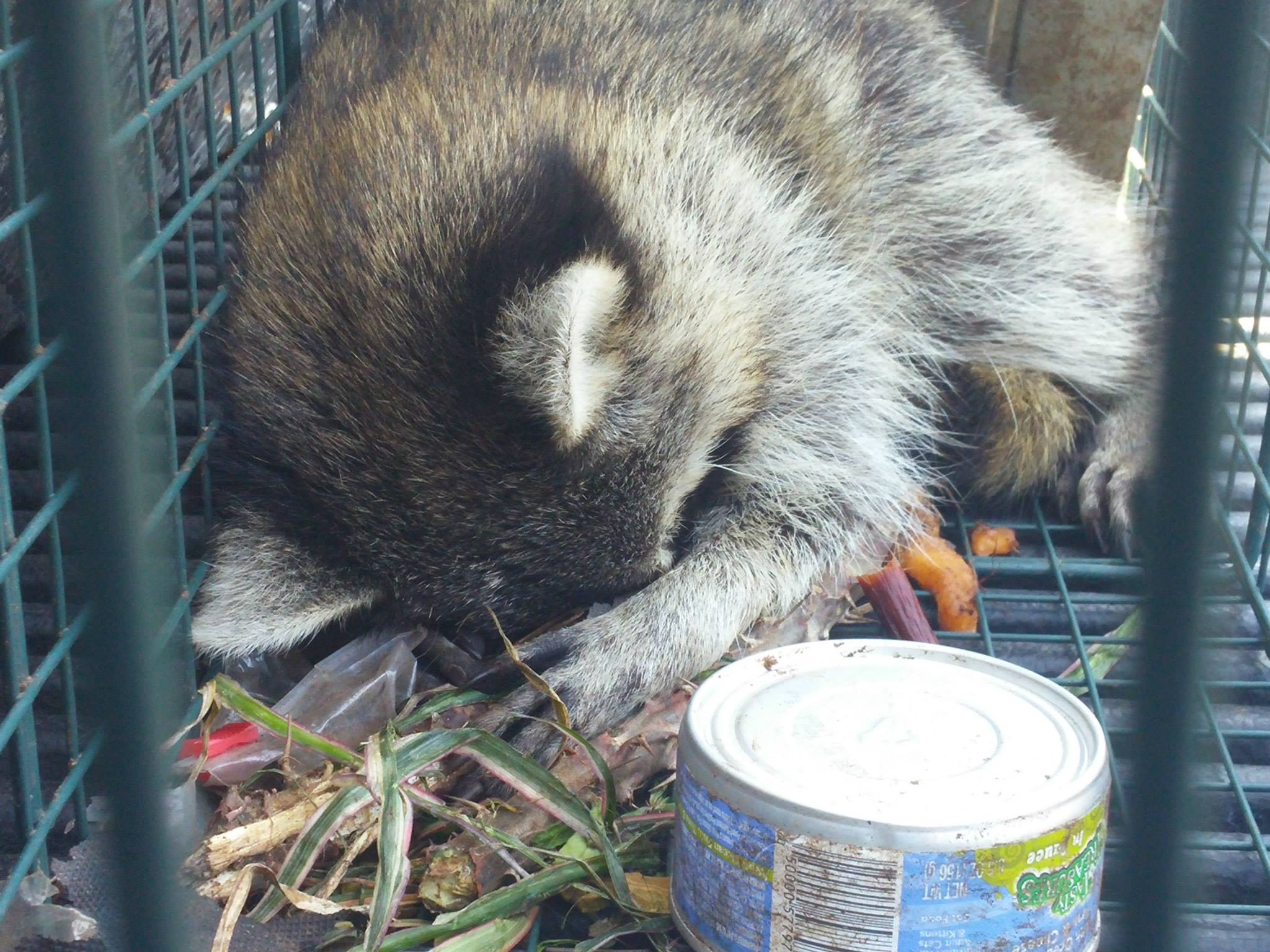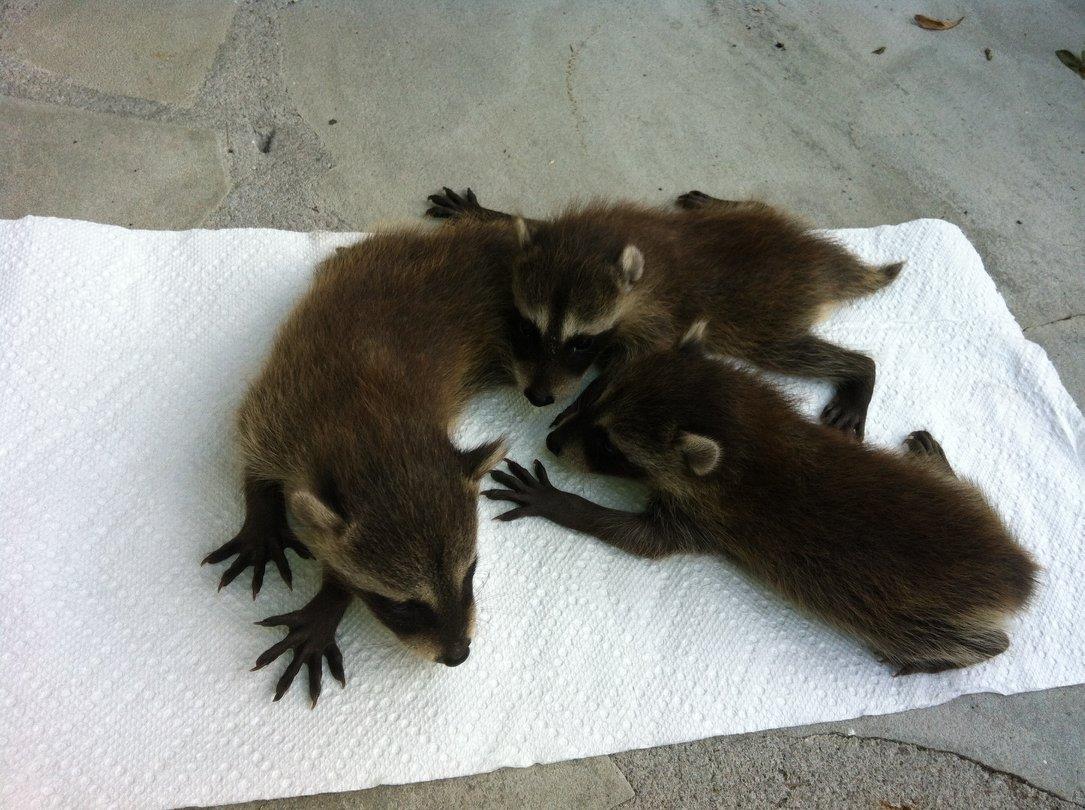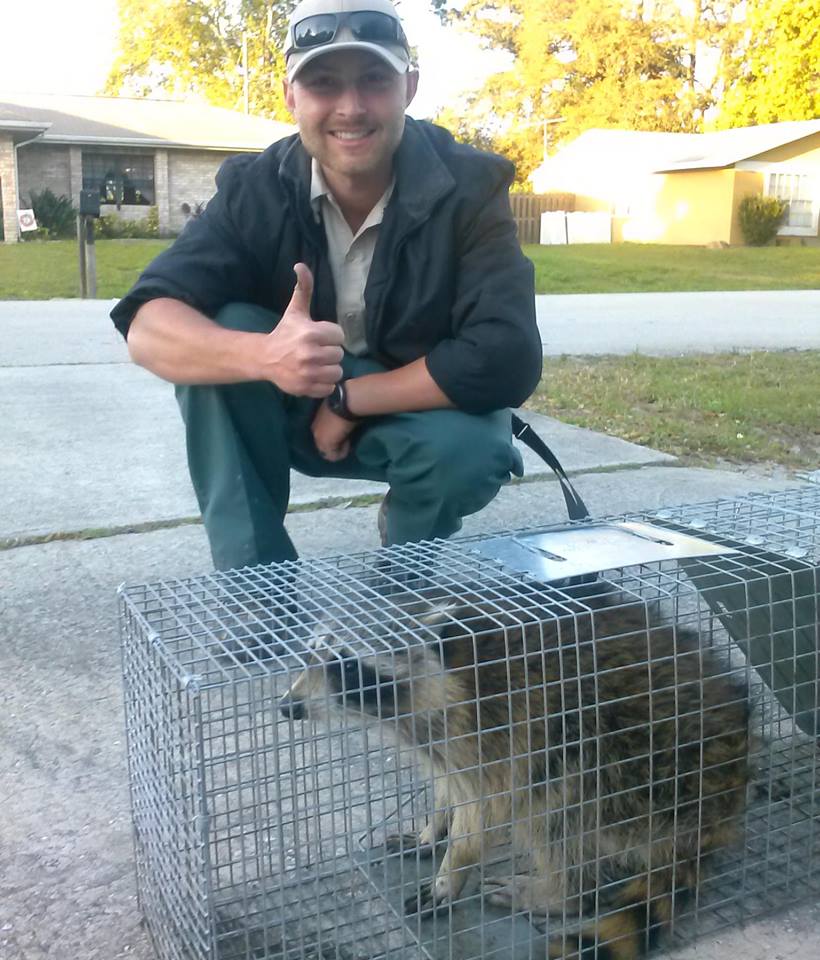
Hi this is Brendan Mangnitz with 24/7 Wildlife Control. I get a lot of customers that call me that have decided to do raccoon trapping and other animal trapping on their own, which is great. If you'd like more information about raccoon trapping please read more about how to trap a raccoon.

So once you catch the raccoon, what do you do with it? When DIY raccoon trapping and raccoon trapping guidelines are followed you can successfully capture and trap a raccoon on your own, but now what do you do with it once it's in the trap? If you are having an issue with raccoons in the attic, the general rule is you're going to set raccoon traps around your property but those raccoon traps with the appropriate bait and capture the raccoons, this can be very dangerous. If you have a raccoon in a trap it's more than likely going to be afraid so you need to handle raccoon trapping and relocation very carefully. If you don't follow these guidelines and steps you can end up being bitten scratched or even kill the raccoon so please be very careful with relocating raccoons.
Once they've been trapped from the attic my advice on raccoon trapping and releasing raccoons is always; make sure you wear a good pair of welder or even Kevlar rat trapping gloves! These gloves generally go up to about the elbow and will protect your hands and arms in case a raccoon sticks its hands out of a trap or tries to bite you. If you use the traps that I recommend such as live animal traps like have a heart traps, these traps will have a handle and a bite plate on the top. What you're going to want to do is very carefully walk up to the trap, make sure your legs are far away from the traps so the animal can't reach its hands through the holes, then carefully with your welder gloves grab the handle of the raccoon trap and slowly pick it up.

Raccoons can be heavy, upwards of 25 pounds, so if you are going to lift a raccoon trap, make sure that you can accommodate the weight and make sure you lift it safely to avoid injuring your back. Raccoons in traps can be aggressive, as well as move around, so make sure you have a firm grip on the raccoon trap to avoid dropping it and hurting the raccoon, which may result in the raccoon getting loose and it raccoon attack you.
Once you have successfully lifted up the raccoon trap you are going to want to place the raccoon trap in the back of a truck. Anytime you are relocating raccoons you generally want to take them at least 25 miles away from your home to avoid the raccoons from entering your attic. Every city, county and state has different ordinances on relocating so call your local animal control officer or even your state regulated Wildlife Commission Department and ask what the local county raccoon removal and raccoon relocation ordinances are. Remember the Law! It's the law for a reason and you must always abide by it when relocating raccoons away from your property. Generally it is not really difficultl to remove raccoons but you always want to contact a professional raccoon removal company like my own, 24/7 Wildlife Control, in order to guarantee that you are obeying the law and properly relocating raccoons. This way we can keep raccoons out of your yard, keep raccoons out of the garden and of course keep raccoons out of the attic.

Any time you are moving a trapped raccoon, you want to make sure the raccoon is safe and protected. You don't want to hurt or injure the raccoon. Relocating raccoons, raccoon removal and raccoon trapping need to be done in a humane way. Additionally you want to keep the raccoon as far away from your home as possible. How do you keep raccoons away you might ask? Simply relocate the animal at least 25 miles away from your home. Once you find a destination (that has been approved by County ordinances such as a wildlife management preserve) you want to remove the raccoon trap from the back of the truck very carefully. Open up the top part and let the raccoon out, but remember when relocating raccoons that if you open up the trap there is a chance of the raccoon might come out and try to attack you. Please be very careful when removing and relocating raccoons.
I have been doing this now for over 6 years with my own company and I have a lot of experience trapping raccoons, removing raccoons from the attic and then relocating these raccoons. There have been many instances where I have had close calls but I know how to protect myself, I always wear the right gear and I prepare. If you are not 100% confident in your skills at raccoon removal, raccoon relocation and/or raccoon trapping, I strongly recommend calling a wildlife relocator such as my team at 247wildlifecontrol.com and we will be more than happy to talk to you over the phone and set up a free inspection.